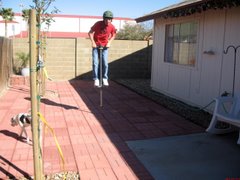"Your question about primitive reflexes is an interesting one.
These reflexes are elicited from the spinal cord, brain stem and midbrain levels. As you know they tend to go away very early in infant life. Some people with damage to higher level brain systems (e.g. Cerebral Palsy) can demonstrate such reflexes much later in life.
However a most important note is that you cannot get rid of these reflexes. They are always present. However they are suppressed by the increasing integrity of the function of the higher brain systems (including the cerebellum). If these systems are not fully developed then there may be varying degrees of manifestation of such reflexes.
If any normally developed person received substantial brain damage such reflexes will no longer be fully inhibited and will manifest themselves once again at any time in life.
Thus focusing on exercises which merely counteract and oppose such reflexes is not the most appropriate way of suppressing them. Dore believes that the development of higher functional integrity of cerebellar-cerebral loop systems is the only real way to develop better higher learning systems and at the same time suppress these lower level reflexes not so much by using direct opposing movements but more naturally by developing higher systems more naturally and allowing this to suppress such reflexes indirectly.
We do measure two reflexes linked to the vestibular cerebellar systems (the Moro and ATNR).
We find that in almost every child and adult who show such reflexes that they have gone by the end of the programme.
Thus I do not see any advantage in trying to identify and suppress individual reflex actions prior to using Dore and would suggest (from our research) that Dore would be just as effective whether or not such reflexes were present at the start of Dore."









No comments:
Post a Comment